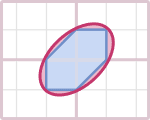

Because it deals with how objects deform under loading, strength of materials is an essential topic for mechanical and civil engineers. But it is also a vast topic, so we’ve split it into three categories – basic concepts, the analysis of beams, and more advanced topics.
Fundamental Concepts
To master strength of materials you need to have a solid understanding of the basic concepts, which includes stress, strain, torsion, buckling etc…
Stress and Strain
Stress and strain are fundamental concepts that relate to the internal forces and deformations within a body in response to applied loads.
True Stress & True Strain
True stress and strain are stress and strain measurements that account for changes in cross-sectional area as a material deforms.
Plane Stress
A component is said to be in a condition of plane stress when all of the stresses acting on it are in the same plane.
Stress Transformation & Mohr’s Circle
Mohr's circle is a graphical technique use to determine how normal and shear stress components vary at a point.
Torsion
Torsion is the twisting of an object caused by a moment applied about a longitudinal axis (torque).
Buckling
Buckling is a sudden deflection that occurs in slender columns or members that are loaded in compression.
Fatigue Failure
Fatigue failure occurs in a material due to the accumulation of damage caused by repeated cycling loading.
Analysis of Beams
Normal and shear stresses are generated in beams as a response to externally applied loads and the beam supports.
Stresses in Beams
Shear and normal stresses are generated in a beam due to externally applied loads and the way the beam is supported.
Deflection of Beams
The deflected shape of a beam can be calculated based on the bending moment along the beam, using several different methods.
More Advanced Topics
Move onto these more advanced strength of materials concepts, failure theories and the finite element method, once you have a good understanding of stress and strain.
Failure Theories
Failure theories like the von Mises and Tresca theories are used to predict the conditions that will results in the failure of a material.
The Finite Element Method
The finite element method is a numerical method used to approximate the solution to complex problems governed by differential equations.










